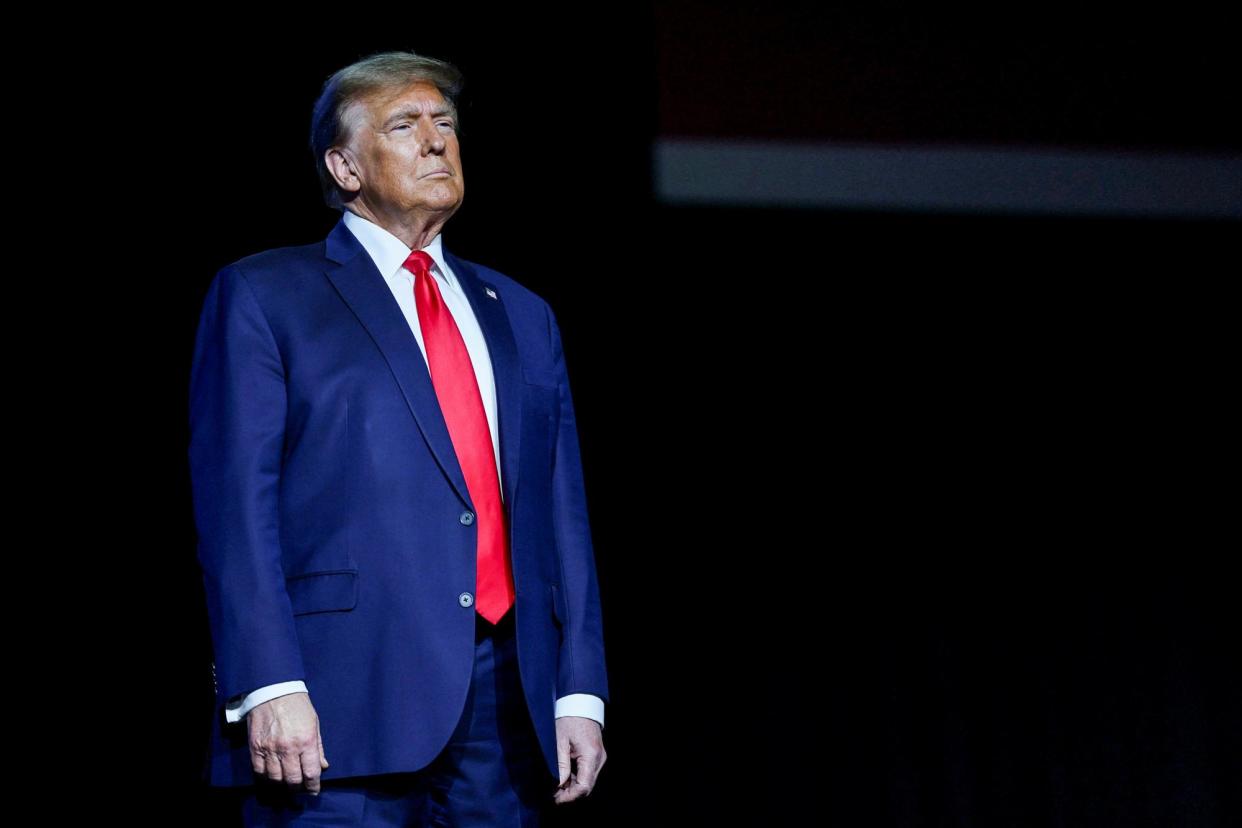Trump attends court hearing for classified documents trial

Donald Trump attended on Monday a critical court hearing where his lawyers presented their defense theories to the federal judge presiding in the criminal case over his retention of classified documents at his Mar-a-Lago club and obstruction of justice.
The presence of the former president in the courtroom could raise the stakes for the US district judge, Aileen Cannon, as she decides whether prosecutors in the office of special counsel Jack Smith should be permitted to withhold or redact certain classified documents that will be turned over in discovery.
Related: Trump gets access to sealed documents on witness threats in Mar-a-Lago case
The hearing taking place behind closed doors at federal district court in Fort Pierce, Florida, was scheduled to start at 9.30am and was conducted “ex parte”, meaning Trump’s lawyers and prosecutors will have separate sessions to make their arguments to the judge.
Trump attended for the first part of the day when his lawyers outlined their broad defense theories as they ask the judge to reject as much of the redactions or substitutions to the classified documents being proposed by prosecutors, according to people familiar with the matter.
The Trump legal team was poised to broadly argue the classified documents Trump was charged with retaining no longer amounted to “national defense information”, as defined in the Espionage Act under which he was charged, when he was caught with them in 2022, the people said.
In order to make that argument at trial, the Trump legal team was poised to broadly contend that they need as much of the classified documents to be left unredacted as possible so they can place the information in a wider context, the people said.
The exact arguments that Trump’s lawyers and prosecutors will make at the hearing, which is being conducted under the rules of section 4 of the Classified Information Procedures Act, are not clear because the proceedings are not public.
It was unclear, too, whether the judge heard arguments about a separate motion filed by Trump’s lawyers also seeking access to prosecutors’ section 4 motion explaining the national security reasons behind each redaction or substitution they are proposing to make.
Should the judge grant either of Trump’s requests – to allow fewer redactions than prosecutors have requested, or more significantly, to allow Trump to access prosecutors’ section 4 filing – prosecutors can appeal her rulings to the US court of appeals for the 11th circuit.
The hearing marks the first flurry of activity in the classified documents case that for weeks has otherwise been relatively quiet. Many of the proceedings have had to do with classified information and therefore were sealed from view on the public docket.
The case is nearing a critical juncture on 1 March, when Cannon has scheduled a hearing to almost certainly set a new trial date. Cannon had originally scheduled the trial for 20 May, but expressed concern last year that it might “collide” with Trump’s federal election interference trial in Washington.
Cannon has come under repeated fire for seemingly favorable rulings to Trump, including pushing back deadlines, since she was randomly assigned the criminal case despite also overseeing litigation related to the preceding grand jury investigation.
Trump has made no secret of the fact that his overarching legal strategy is to seek delays – because if he were to win the 2024 election in November and the trial had not yet started or had not been completed, he could appoint as the attorney general a loyalist who would drop the charges against him.
But finding time for all of Trump’s trials – he also has a criminal case in New York and in Georgia – has been a logistical nightmare because they have all been scheduled in relation to one another and as Trump runs his campaign for another presidency concurrently with his legal strategy.


